Evaluating Industrial Inkjet Printers
If your home has doors with a “natural” wood finish, an inspection along the edge of the door that is usually hidden by the door jamb may reveal a series of letters, numbers, and a description of the door’s type and finish. The underside of floor tiles in your kitchen will reveal similar information as well. These are industrial markings that allow easy identification, show the date and place of manufacture, the batch or lot number, and other relevant information at a glance.
Industrial markings help retailers maintain accurate inventories and help installation professionals and customers see what they are working with. However, this is only possible if the information is printed clearly and legibly. This stems from the printer used to make them and the environment this printer operates in.
Inkjet printers for industrial marking applications must not only be suited to the product coming down the production line, but also to the environment they’re printing in. To obtain a printer that will work for your unique conditions, you should ask several questions to be able to make an informed purchase. Here’s a look at what those necessary questions are.
Evaluating Production Environments for Industrial Marking Printers
Inkjet printers for industrial applications are used to print on everything from construction materials to food packaging. They must operate in a wide range of environments, though individual printers are typically not suited for all environments. In some cases, these environments can be quite extreme. The first questions that should be asked when evaluating inkjet printers should help to develop a clear idea of the environment the printers will be operating within.
Consider these questions about the production environment:
- Is the environment very clean, like in pharmaceutical or bioprocessing production lines?
- Alternatively, is the environment one with a lot of potential airborne contaminants like dust or debris?
- Is it a wet environment (e.g., humidity or other reasons)?
- Is the temperature especially hot, cold, or is it routinely somewhere in between?
- Are caustic chemicals part of the process of cleaning surfaces or prepping them?
All of these environmental factors can affect how a printer operates and how ink bonds to the surface of products. The nature of the products to be marked also plays a role in choosing an inkjet printer.
Evaluating Products for Industrial Markings
There is a wide variety of products that receive industrial markings, from lightbulbs to PVC piping to cut steel tubing. The surface of these products can affect the adhesion of the ink. Any processing before or after the application of the ink can also cause smearing or compromise the legibility of industrial markings.
To ensure clear, legible, and lasting industrial markings, the following questions about the product should be considered:
-
What is the substrate that will be marked and what are its unique characteristics? For example, is it porous, semi-porous, or non-porous?
-
Is the substrate smooth like glass or rigid plastic, or is it something porous like concrete or wood?
-
Is there a pre-print production process, like polishing, that might affect print mark adherence?
-
Is there a post-print production process, such as washing, that could remove or smear the ink?
-
Is the needed industrial marking strictly alphanumeric product codes, or will it feature a scannable barcode?
-
What is the purpose of this code or mark? Is it informational toward the end customer, will it provide batch and inventory tracking for retailers, or will it need to serve both purposes?
-
What is the size of the industrial marking that needs to be made?
With the answers to these questions in hand, you will have a solid basis for evaluating inkjet printers for industrial marking applications and a basis for choosing one that will meet the needs of your customers and retail partners. However, there are some questions that will need to be answered to ensure that an inkjet printer meets the needs of your production facilities and your staff.
Evaluating Inkjet Printers for Industrial Marking Applications
The final questions to ask when evaluating inkjet printers concern the volumes of the products being produced and the onsite support that a company can provide for its printers. Production lines can produce high volumes of products and an inkjet printer will have to keep up with them. Lines often also produce multiple products, or varying types of products, so the industrial markings these printers make may need to change regularly.
Before making a final choice for a production line printer, the following questions will need to be answered:
-
How many print lines will be running?
-
What is the line’s production speed?
-
What is the production rate in products per hour?
-
What level of support can employees provide the printer? Will it be operated by a specialist or will line personnel be overseeing daily operation and making changes?
These questions will be the key to finding the inkjet printer your company needs. A high-volume inkjet printer that is flexible enough to handle multiple product types and intuitive enough for line personnel to work with will serve most companies well.
The key to finding this solution is being able to answer the questions above and bring the answers to experts in the inkjet printing field. InkJet, Inc. has decades of experience in providing industrial inkjet printing solutions to their customers. They can help you find the ideal inkjet printers for you and provide setup and long-term support for your production lines.
Discover how InkJet, Inc. can help you find an inkjet printer for industrial markings by contacting us or calling (800) 280-3245.



